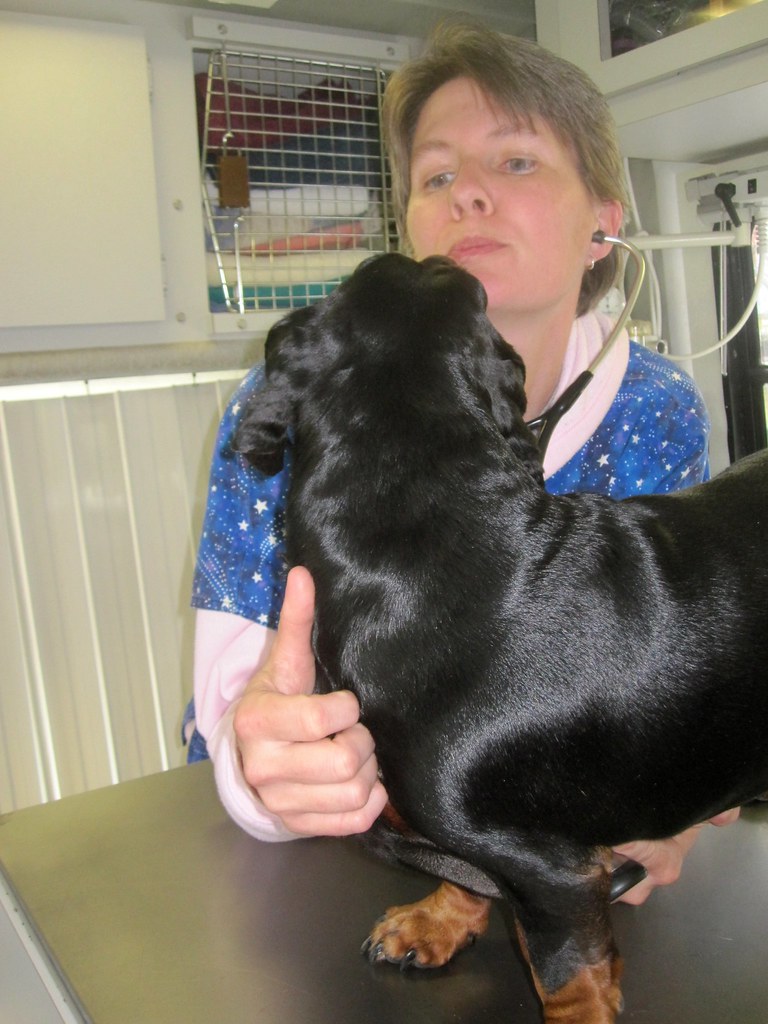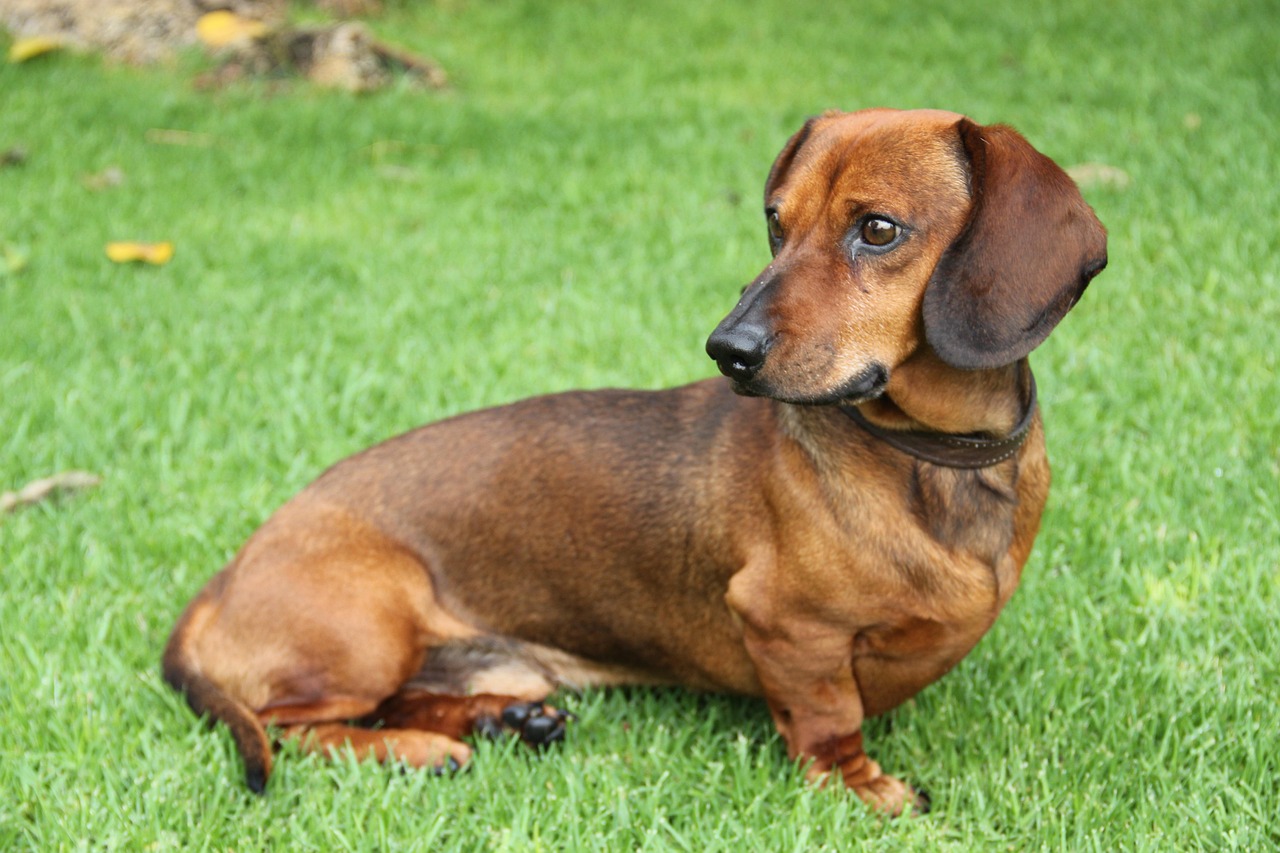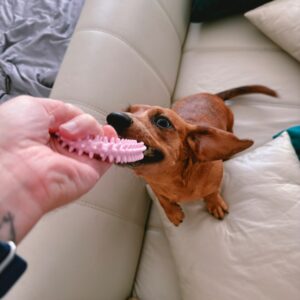Dachshund spine problems are a common concern among pet owners of this beloved breed. These unique dogs, known for their long bodies and short legs, are prone to various spinal issues due to their anatomy. Understanding the potential risks associated with dachshund spine problems is crucial for every owner, as early detection and preventive measures can make a significant difference in your dog’s quality of life.
In the following sections, we will explore the common spine issues faced by dachshunds, signs that may indicate spine problems, and effective treatment options. We’ll also discuss how regular vet checkups and a proper diet can contribute to maintaining a healthy spine, and the importance of tailored exercises for your dachshund’s wellbeing. By staying informed and proactive, you can help ensure your dachshund leads a happy and active life.

Common Dachshund Spine Problems
Dachshunds, known for their long bodies and short legs, are prone to specific spine issues due to their unique anatomy. Here are some of the most common spine problems affecting this breed:
- Intervertebral Disc Disease (IVDD): This is one of the most prevalent spine problems in Dachshunds. It occurs when the discs between the vertebrae degenerate or herniate, leading to pain, nerve damage, and mobility issues.
- Degenerative Disc Disease: Over time, the discs can lose hydration and elasticity, causing pain and reduced flexibility. This condition can lead to chronic discomfort for the dog.
- Spinal Stenosis: This condition involves the narrowing of the spinal canal, which can compress the spinal cord and nerves, resulting in pain and difficulty walking.
- Vertebral Fractures: Dachshunds are susceptible to fractures in their vertebrae, especially if they jump from heights or are involved in accidents. This can lead to severe pain and immobility.
- Cauda Equina Syndrome: This condition occurs when the nerves at the end of the spinal cord become compressed, leading to pain, weakness, and loss of control over the bladder and bowels.
Recognizing these common spine problems early can help ensure that your Dachshund receives appropriate care and treatment. Regular vet checkups and monitoring for any signs of discomfort are essential for maintaining your dog’s spine health.
Signs Your Dachshund May Have Spine Issues
As a Dachshund owner, it’s essential to be aware of the signs that may indicate your furry friend is experiencing spine issues. Early detection can lead to better outcomes and a healthier life for your pet. Here are some common signs to look out for:
- Difficulty Walking: If your Dachshund struggles to walk or shows signs of limping, it may indicate spine problems.
- Unusual Posture: Watch for any abnormal positions or stiffness in their back. A hunched back can be a sign of discomfort.
- Reluctance to Jump: If your dog is avoiding jumping or climbing stairs, it could be due to pain in the spine.
- Changes in Behavior: Increased irritability or withdrawal from activities may suggest that your Dachshund is in pain.
- Muscle Weakness: Noticeable weakness in the legs or a lack of coordination can be a symptom of spinal issues.
- Loss of Bladder Control: Incontinence or difficulty in controlling urination can indicate serious spine problems.
- Excessive Grooming: If your Dachshund is licking or biting at a specific area, it may be trying to soothe pain.
If you observe any of these signs, it’s crucial to consult your veterinarian for a thorough examination. Early intervention can make a significant difference in your Dachshund’s health and quality of life.
How to Prevent Spine Problems in Dachshunds
Preventing spine problems in Dachshunds is essential for their overall health and well-being. Here are some effective strategies to help keep your furry friend’s spine healthy:
- Maintain a Healthy Weight: Keeping your Dachshund at a healthy weight reduces the strain on their spine. Obesity can lead to various health issues, including spine problems.
- Provide Proper Support: When lifting your Dachshund, always support their back and hindquarters. Avoid letting them jump off high surfaces to prevent injury.
- Encourage Low-Impact Exercise: Engage your Dachshund in low-impact activities like walking or swimming. This helps strengthen their muscles without putting too much pressure on their spine.
- Invest in a Good Quality Bed: A supportive bed can help maintain spinal alignment during rest. Look for orthopedic options that provide adequate support.
- Use Ramps or Steps: If your Dachshund needs to access furniture or vehicles, consider using ramps or steps to minimize jumping and strain on their spine.
- Regular Vet Visits: Schedule routine checkups with your veterinarian to monitor your Dachshund’s spine health and catch any potential issues early.
- Practice Good Nutrition: Feed your Dachshund a balanced diet rich in nutrients that support bone and joint health. Consult your vet for specific dietary recommendations.
By following these preventive measures, you can help ensure a happier, healthier life for your Dachshund and reduce the risk of spine-related issues.
Treatment Options for Dachshund Spine Problems
When it comes to treating spine problems in Dachshunds, there are several options available. The choice of treatment will depend on the severity of the condition and the specific diagnosis made by your veterinarian.
Conservative Management
For mild cases, conservative management may be recommended. This can include:
- Rest: Limiting activity to allow healing.
- Medication: Anti-inflammatory drugs to reduce pain and swelling.
- Physical therapy: Gentle exercises to strengthen muscles.
Surgical Options
In more severe cases, surgery may be necessary. Common surgical procedures include:
-
- Discectomy: Removal of the herniated disc material.
- Laminectomy: Removal of part of the vertebra to relieve pressure on the spinal cord.
- Stabilization: Using implants to stabilize the spine.
Alternative Therapies
Some pet owners may consider alternative therapies as part of the treatment plan. These can include:
- Acupuncture: To relieve pain and improve mobility.
- Chiropractic care: To realign the spine and improve function.
Post-Treatment Care
Regardless of the treatment chosen, post-treatment care is crucial for recovery. This may involve:
- Follow-up visits: Regular check-ups with your veterinarian.
- Rehabilitation: Continued physical therapy to regain strength.
- Monitoring: Keeping an eye on your dog’s progress and any changes in behavior.
Consulting with a veterinarian is essential to determine the best treatment plan tailored to your Dachshund’s specific needs.

The Importance of Regular Vet Checkups
Regular vet checkups are crucial for maintaining your Dachshund’s overall health and well-being. These visits allow for early detection of potential health issues, ensuring your pet receives timely treatment.
Why Regular Checkups Matter:
- Preventative Care: Routine exams help catch health problems before they become serious.
- Vaccinations: Keeping your Dachshund’s vaccinations up to date protects them from various diseases.
- Weight Management: Regular visits help monitor your dog’s weight, which is essential for preventing obesity-related issues.
- Dental Health: Dental checkups are vital, as oral health impacts overall health.
Additionally, your vet can provide guidance on nutrition and exercise, tailored specifically for your Dachshund’s needs. This personalized advice can significantly contribute to a healthier and happier life for your pet.
What to Expect During a Checkup:
- Your vet will conduct a thorough physical examination.
- They may recommend blood tests to check for underlying health issues.
- Vaccinations and preventive treatments will be discussed and administered as needed.
In summary, regular vet checkups are essential for the long-term health of your Dachshund. They help ensure that any potential issues are identified and addressed promptly, allowing your furry friend to live a longer, healthier life.
Caring for a Dachshund with Spine Issues
When it comes to caring for a Dachshund with spine issues, there are several important factors to consider. These can greatly impact your dog’s quality of life and overall health.
Creating a Comfortable Environment
It’s essential to provide a comfortable living space for your Dachshund. Here are some tips:
- Use a soft bed that supports their back.
- Avoid stairs whenever possible.
- Keep their living area free from clutter to prevent accidents.
Managing Pain and Discomfort
If your Dachshund is experiencing pain, consult your veterinarian for proper pain management options. This may include:
- Medications to reduce inflammation.
- Physical therapy to improve mobility.
- Heat or cold therapy to soothe sore muscles.
Regular Exercise
Gentle exercise is crucial for maintaining your Dachshund’s strength. Consider the following:
- Short, frequent walks instead of long hikes.
- Low-impact activities like swimming.
- Interactive play that doesn’t strain their back.
Monitoring Weight
Keeping your Dachshund at a healthy weight is vital. Excess weight can put additional strain on their spine. To manage their weight:
- Provide a balanced diet as recommended by your vet.
- Limit treats and table scraps.
- Encourage active playtime.
Emotional Support
Spine issues can be stressful for your Dachshund. Providing emotional support is equally important:
- Spend quality time with your dog to alleviate anxiety.
- Use calming products if necessary, like anxiety wraps.
- Be patient and understanding of their limitations.
By following these guidelines, you can help ensure that your Dachshund lives a happy and comfortable life despite their spine issues. Regular communication with your veterinarian will also help you stay informed about the best practices for your furry friend.

Helpful Exercises for Dachshund Spine Health
Maintaining your Dachshund’s spine health is crucial, especially given their unique body structure. Here are some helpful exercises that can support their spine and overall well-being:
1. Gentle Stretching
Stretching helps improve flexibility and reduce stiffness. Try these stretches:
- Neck Stretch: Gently guide your Dachshund’s head to the left and right.
- Back Stretch: Encourage them to arch their back by using a treat to motivate them.
2. Swimming
Swimming is a low-impact exercise that is excellent for spine health. It builds muscle without putting stress on the back. Ensure you:
- Supervise your Dachshund in the water.
- Use a life vest if they are not strong swimmers.
3. Short Walks
Taking your Dachshund on short, regular walks can help strengthen their muscles. Remember to:
- Keep the pace slow and steady.
- Avoid steep hills or rough terrain.
4. Balance Exercises
Improving balance can enhance your Dachshund’s core strength. Try:
- Using a balance disc: Encourage your Dachshund to stand on it for a few seconds.
- Walking on different surfaces: Varying textures can help improve stability.
5. Controlled Playtime
Engaging in controlled play can be beneficial. Activities such as:
- Fetch: Use soft toys to prevent any impact injuries.
- Hide and seek: This encourages mental and physical stimulation without overexertion.
Always consult your veterinarian before starting any new exercise routine to ensure it is suitable for your Dachshund’s specific needs. Regular exercise can significantly contribute to their spine health and overall quality of life.

Understanding the Genetics of Spine Problems in Dachshunds
The genetics of spine problems in Dachshunds is a complex topic that involves understanding how inherited traits can influence health issues. Dachshunds are known for their long bodies and short legs, which can predispose them to certain spinal conditions.
Research indicates that genetic factors play a significant role in the development of spine problems. Some of the most common conditions include:
- Intervertebral Disc Disease (IVDD): This is a prevalent issue among Dachshunds, where the discs between the vertebrae degenerate, leading to pain and mobility issues.
- Spondylosis: A degenerative condition that can cause bone spurs along the spine, potentially leading to discomfort.
- Spinal Stenosis: This occurs when the spinal canal narrows, putting pressure on the spinal cord and nerves.
Genetic predisposition means that some Dachshunds may inherit a higher risk for these conditions from their parents. Breeders can help mitigate these risks by selecting breeding pairs that have a history of healthy spines.
In addition to genetics, environmental factors also play a role. Obesity can exacerbate spinal problems, so maintaining a healthy weight is crucial for Dachshunds.
Understanding the genetic background of your Dachshund can aid in early detection and intervention. Regular consultations with your veterinarian can help monitor any potential issues related to spine health.
In conclusion, while genetics significantly influence spine problems in Dachshunds, responsible breeding and proactive care can help manage and reduce the risks associated with these conditions.

Diet and Nutrition for a Healthy Spine
Maintaining a balanced diet is essential for keeping your Dachshund’s spine healthy. Proper nutrition can help prevent spine problems and support overall well-being. Here are some important aspects to consider:
- High-Quality Protein: Ensure your Dachshund gets enough protein from sources like chicken, fish, and lamb. Protein helps build strong muscles that support the spine.
- Omega-3 Fatty Acids: Incorporate foods rich in omega-3s, such as fish oil or flaxseed oil. These fats have anti-inflammatory properties that can benefit spinal health.
- Vitamins and Minerals: Vitamins like Vitamin D and Calcium are crucial for bone health. Look for dog foods fortified with these nutrients.
- Fiber: A diet high in fiber can aid digestion and prevent obesity, which is important for reducing stress on the spine.
- Weight Management: Keeping your Dachshund at a healthy weight is vital. Extra weight can put additional strain on the spine.
Consider consulting with your veterinarian to create a customized diet plan that suits your Dachshund’s specific needs and health conditions. Regularly monitor their weight and adjust their diet as necessary.
Incorporating these dietary elements can significantly contribute to maintaining a healthy spine for your Dachshund, ensuring they lead a happy and active life.




